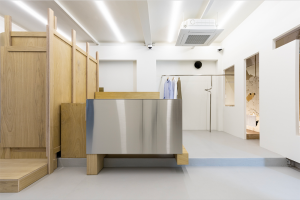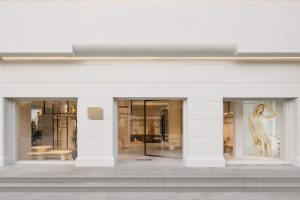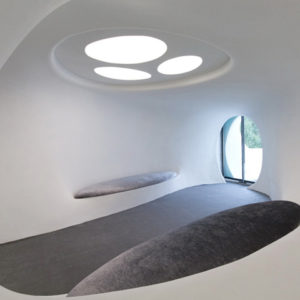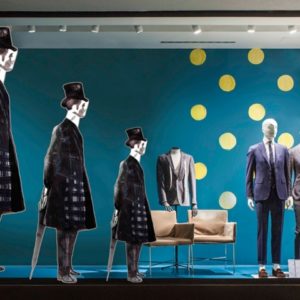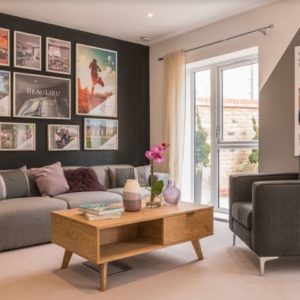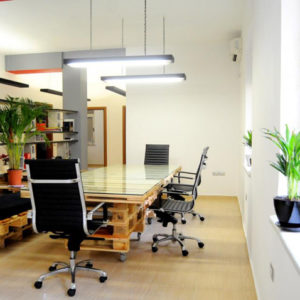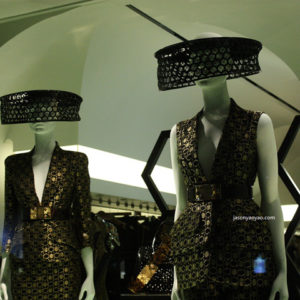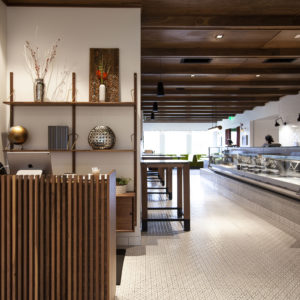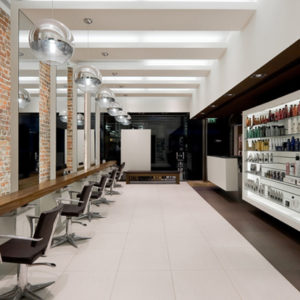
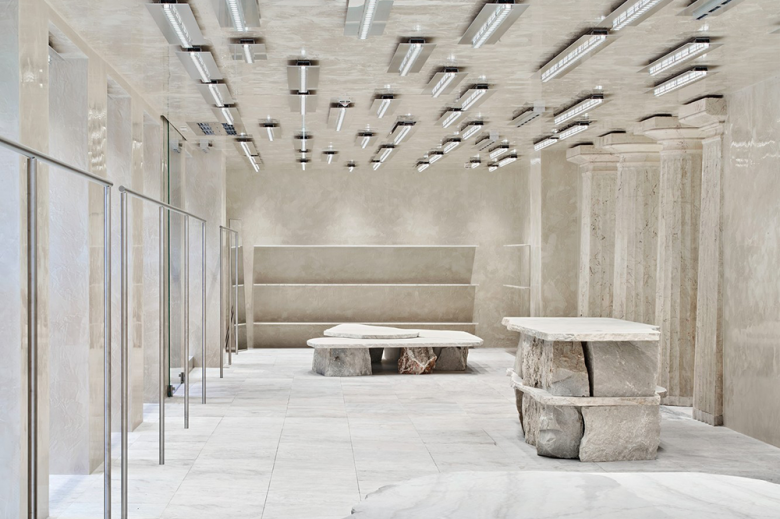
This former bank suffered a robbery in which hostages were taken, leading to the term Stockholm syndrome. After the bank closed, several interventions added a series of layers over the years, masking the original neoclassic architecture.
The project cleans up space, leaving only the essential features. Although the floors were made of real marble, many elements were faux marble, and the project plays with this duality. All the skin surfaces are monochrome within the shades of the original Ekeberg marble.
There are three rooms connected to each other through columns, and, at the end of the main axis, a new abstract colonnade creates a new background. This fake colonnade is made of real marble and provides access to the fitting rooms.
Pieces of marble furniture by Max Lamb work as podiums while creating a new marble floor on top of the old one. As a counterpoint, the light, designed by Benoit Lalloz, is technical and sharp.
Architects: ARQUITECTURA-G
Photographs: José Hevia
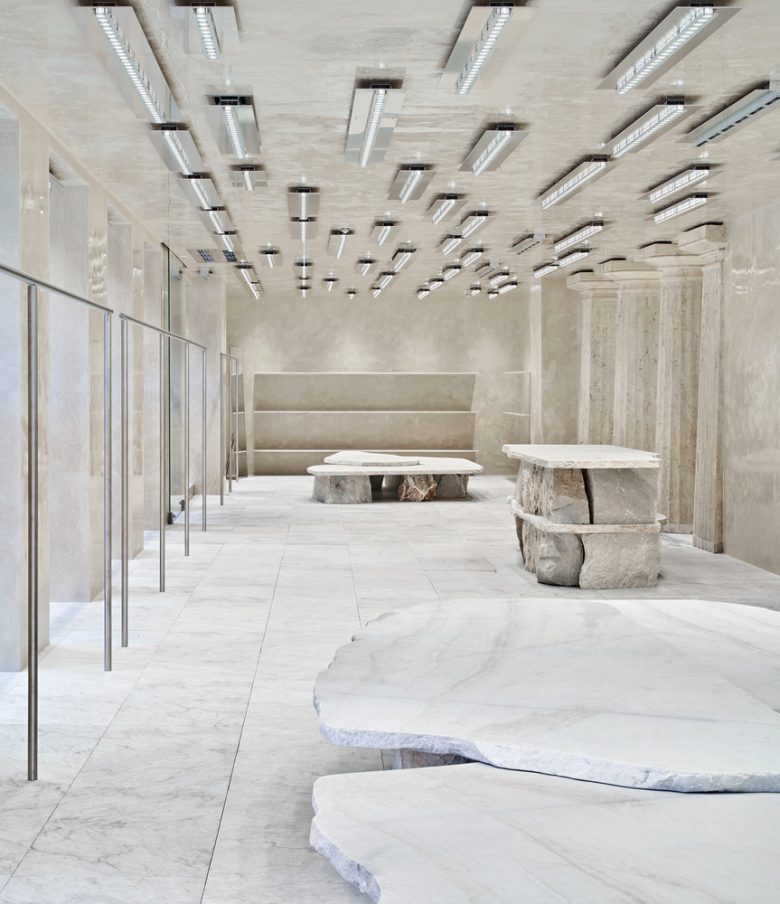
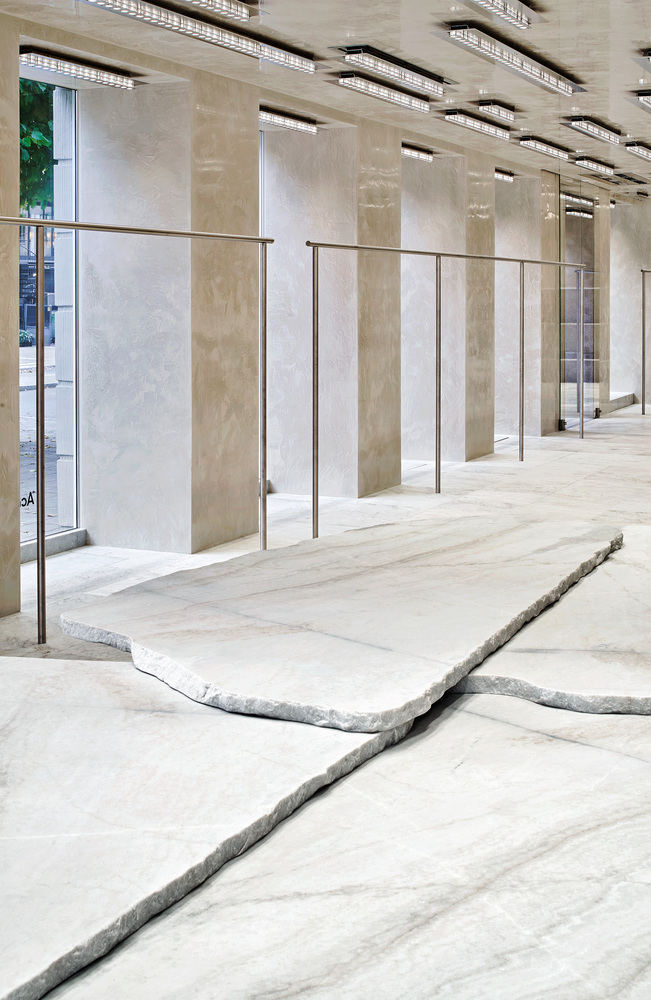
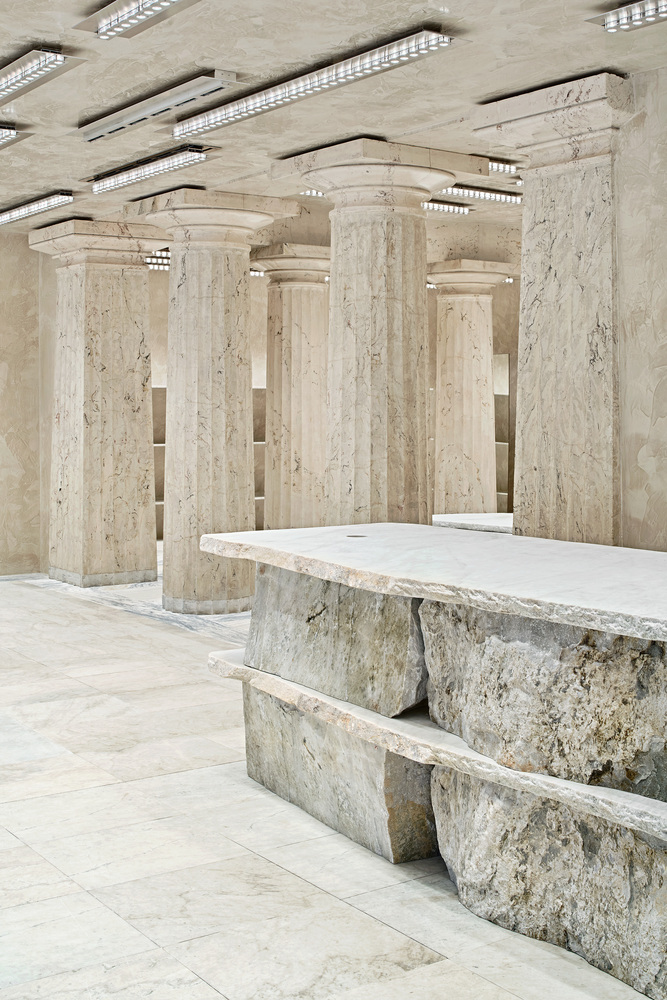
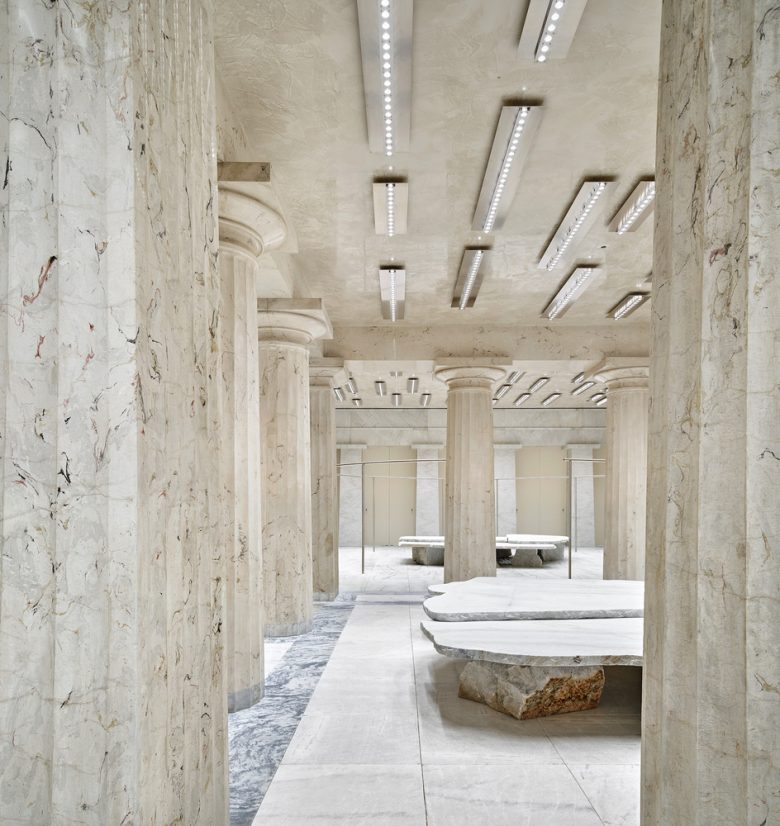
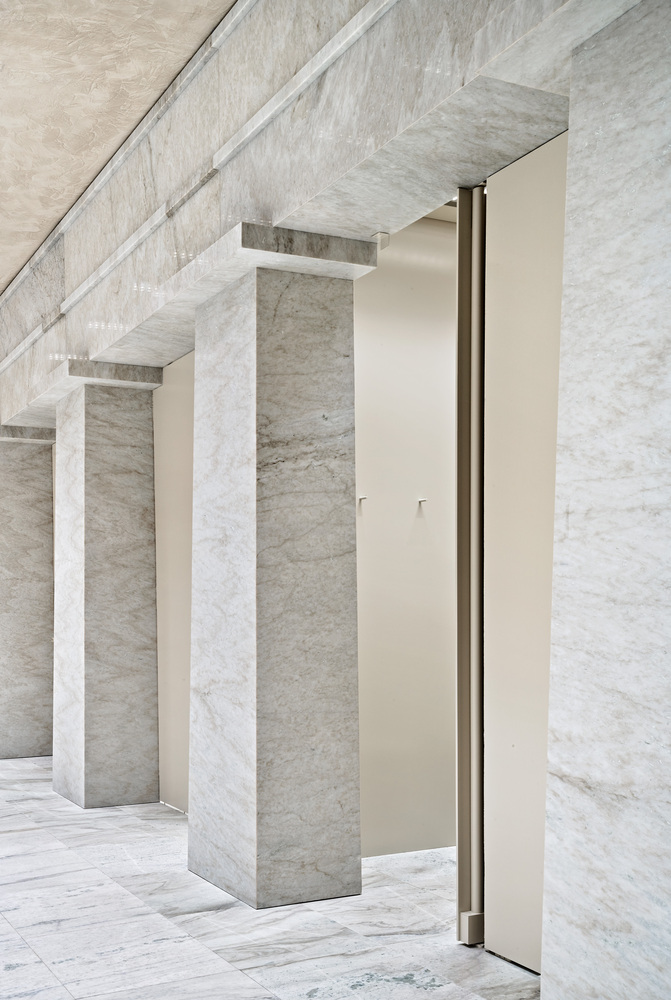
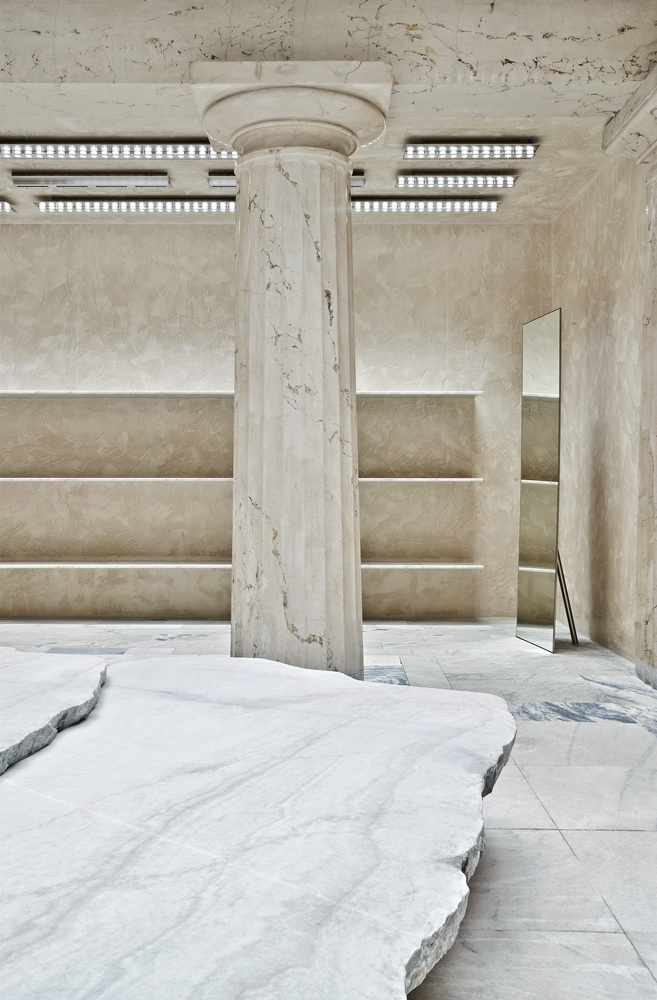
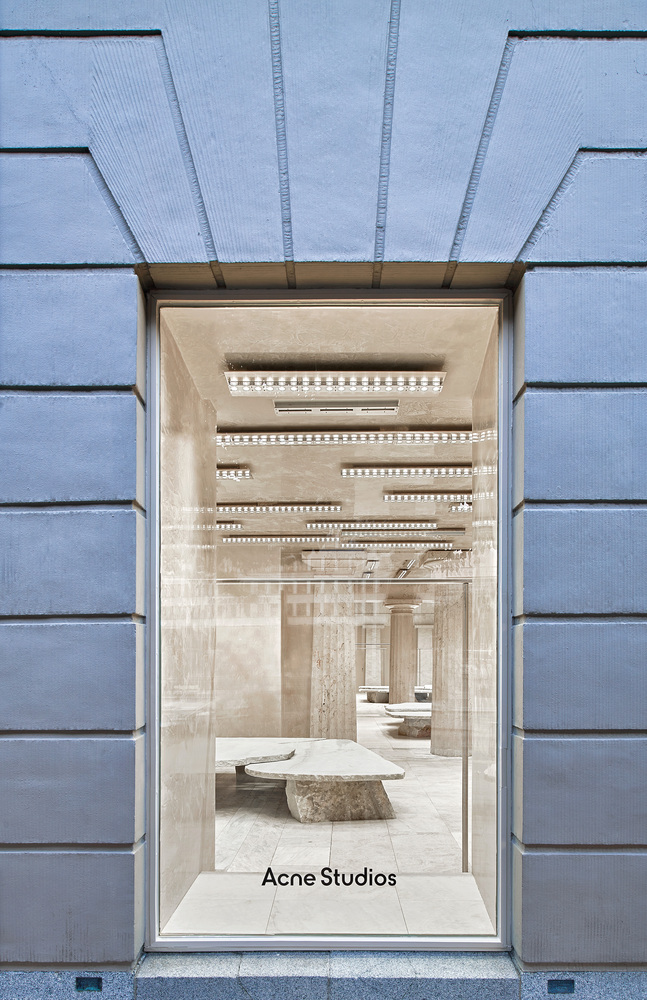
Add to collection
